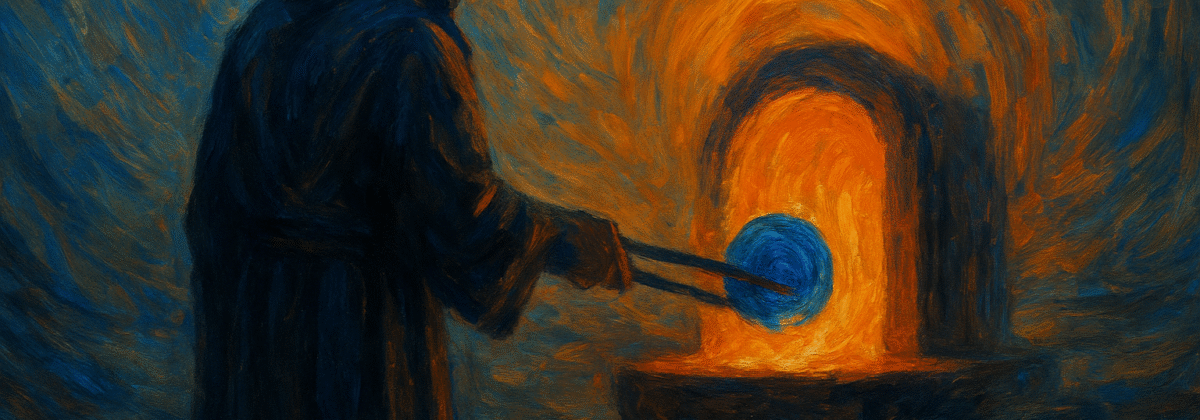“This signature on each soul,” writes C. S. Lewis, “may be a product of heredity and environment, but that only means that heredity and environment are among the instruments whereby God creates a soul.”
I’ve been thinking about that quote a lot lately – especially in the age of AI. Odd as it sounds, it’s made me notice how little control I’ve actually had over becoming who I am. I like to imagine I’ve been discerning – that my choices have shaped me. But in truth, I didn’t build myself from scratch. Perhaps, like an AI model in training, I’ve just been formed by countless inputs: my upbringing, the examples I absorbed from culture, media, and literature, and the assumptions I inherited before I was even old enough to question them.
I didn’t pick my parents. Or the town I grew up in. I didn’t choose the way my brain is wired to handle stress, or the way my body responds when I’m short on sleep. Even the things I love – music, books, technology – most of those didn’t come from a carefully reasoned choice. They just were interesting to me, in a way I didn’t fully understand. They felt like discoveries more than decisions.

I don’t mean to say I’ve had no role in shaping who I’ve become. When I was younger, I didn’t like guacamole – but I wanted to be someone who did (why I wanted that is another layer of mystery, however). So I kept trying it, bit by bit, until eventually it clicked. Now I love it; it’s one of my favorite foods. That was one of those somewhat rare times when I felt like I rewired something on purpose. But even with moments like that, when I step back and look at the shape of my life, most of it feels more like an unfolding than a construction project. Like I’ve been gradually getting to know someone – me – who was already partly shaped by forces I never got to vote on. Maybe that’s determinism. Maybe it’s divine guidance. Maybe it’s some strange mix of both.
Belief in Free Will: An Important Choice
I’ve always found the free will debate both uncomfortable and fascinating. Start talking about consciousness or quantum physics, and you risk drifting into pop-sci mysticism – but even so, I can’t shake the feeling that there’s something important there. Classical determinism, where it’s a clockwork universe and everything is just dominoes falling, is elegant if you like imagining the world as a traditional computer. But it doesn’t quite line up with how life feels from the inside. We have insider knowledge, as conscious beings, that doesn’t translate into the third-person, scientifically neutral view.
Even in physics, things aren’t as tidy as they once seemed. Quantum mechanics replaced determinism with probabilities. We don’t know where a particle will be, only where it’s likely to show up. That doesn’t prove we have free will, of course – but it hints that unpredictability is baked into the universe at a fundamental level.
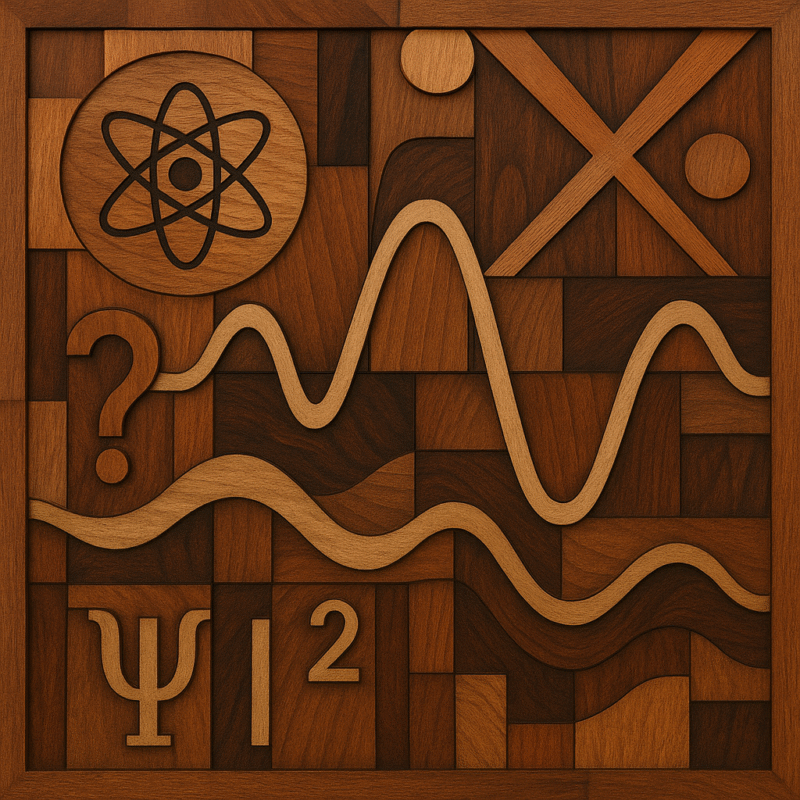
And what fascinates me even more is this: whether or not you believe in free will seems to change how your life goes. People who think their choices matter tend to act with more motivation, more grit. Psychologist Roy Baumeister has been one of the pioneers in studying this phenomenon. His research found that believing in free will correlates with better self-control, more ethical behavior, even better academic performance. Which creates a strange loop: if you don’t believe in free will, you might still want to choose to believe in it. Paradox territory.
Personally, I lean toward a version of free will that lives inside a web of probabilities. I grew up where I did, in the family I did, and given that context, it was likely I’d stay Christian – and I have. The odds of me converting to Buddhism were low, just as my natural introversion meant my chances of becoming a famous newscaster were pretty slim. Not zero. But not high.
Belief in choice is one thing – but where do those choices steer us when the world asks how we want to contribute to society?
Vocation and Identity
All through childhood, one of the main questions adults ask is, “What do you want to be when you grow up?” It’s asked with curiosity, sometimes playfully, but beneath it sits something deeper – an assumption that, to some extent, our career defines what we are.
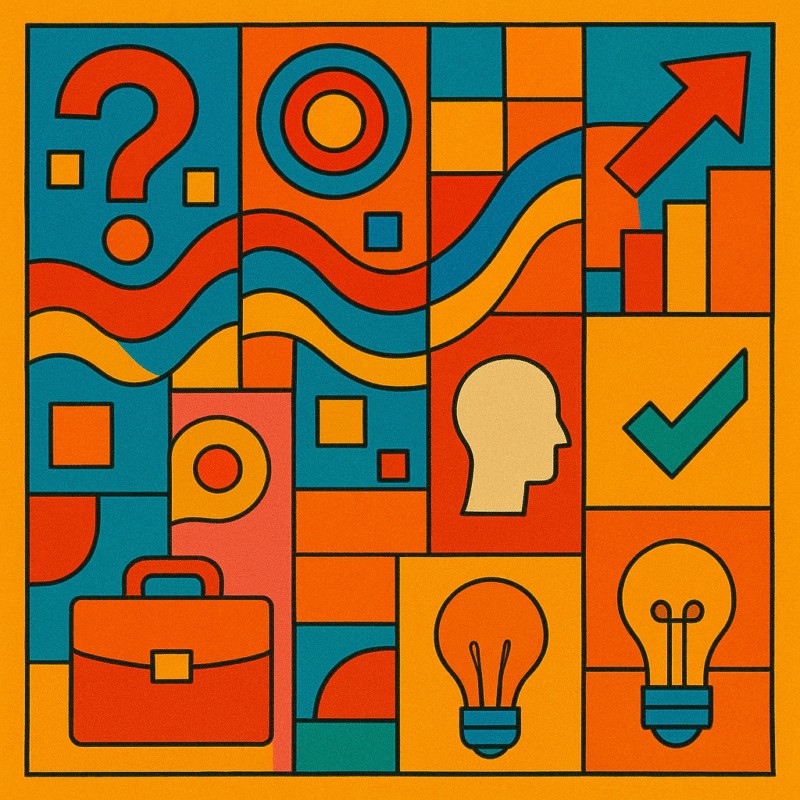
By high school, many of us are taking career aptitude tests – trying to figure out which jobs might suit us, based on our temperament or interests. And again, it feels like discovery more than invention. Parker Palmer suggests that “vocation does not come from willfulness. It comes from listening.” I liked that, when I recently read his book, Let Your Life Speak: Listening for the Voice of Vocation.
And it’s not just relevant for paid work outside the home. Family caregiving, career pivots, volunteer efforts, invisible labor – all of these can expose parts of us we didn’t know were there. Sometimes, a crisis throws us into a role we never imagined for ourselves, and we find that we’re stronger than we thought.

However, as AI continues to grow more capable, it’s likely we’ll be asked to rethink the whole framework. If many jobs are automated or made obsolete, will we still see work as core to identity? Or will we start anchoring the self in other places – creativity, relationships, meaning beyond productivity?
Yet even a calling can land us in places we never asked for, especially when the furnace of suffering suddenly roars to life.
Formed by Fire
If so much of who we are comes through discovery rather than sheer willpower – what does that say about our suffering? About the things we didn’t choose, but can’t escape?
C. S. Lewis once described pain as God’s “megaphone to rouse a deaf world,” and while I’ve wrestled with that idea, I think I understand the heart behind it. It’s not that pain in itself is good (although we can learn to be grateful even in the midst of pain) but that it can get our attention in ways that nothing else can. Still, Lewis also believed deeply in the uniqueness of each soul, shaped not just by choices, but also by circumstances, many of which are outside our control.
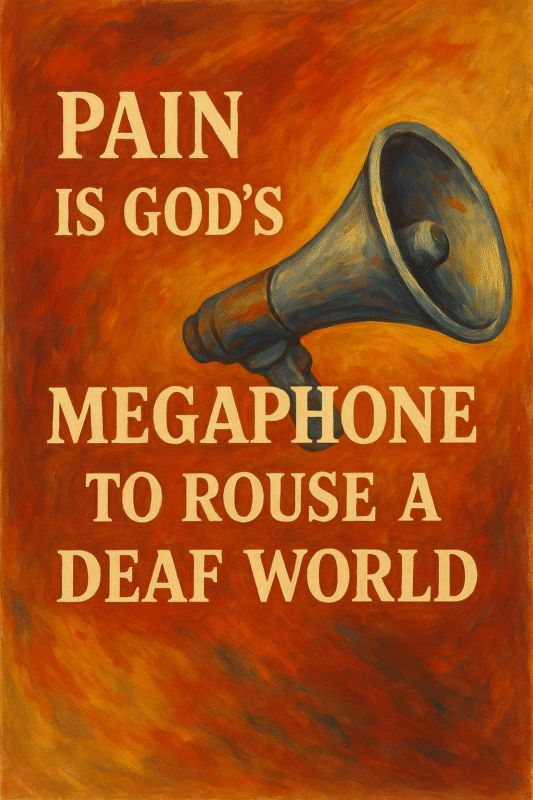
Richard Rohr puts it another way. He suggests that suffering, especially the kind we don’t control, often breaks down the false self – the ego we try to construct – and opens us to a deeper reality. “We do not think ourselves into new ways of living,” he writes, “we live ourselves into new ways of thinking.” There’s a kind of formation that only comes from living through things we didn’t sign up for.
Some of us pray. Some of us doubt. All of us hurt.
Of course, not everyone sees it this way. Some of us pray. Some of us doubt. All of us hurt. Whatever language we use – spiritual, psychological, or secular, and often some blend of all three – we’re still trying to make sense of what it means to be (and keep becoming) a person in a world that is often painful and frequently beyond comprehension.
The scars from that pain, that heat, don’t disappear; they stand out like fault lines, waiting for their own kind of restoration.
The Gold in the Grain
By the time we reach adulthood, most of us carry more than a few cracks. But as the Japanese art of kintsugi reminds us, it’s possible to mend what’s broken not by hiding the seams, but by filling them with gold – making the object more beautiful, not less, for having been fractured.
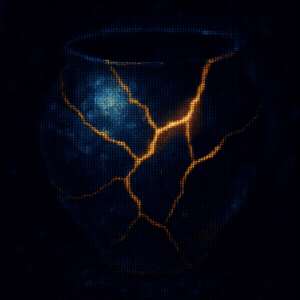
And they’ll heal our scars
Sadness will be far away
We know that the universe is stranger than it seems on the surface. At the quantum level, things blur, flicker, and refuse to be pinned down. And maybe consciousness – this messy, mysterious awareness we wake into each day – is stranger still. Maybe the ordinary moments – grief, work, guacamole, laughter, fatigue, curiosity, boredom, sunrise, and sunset – are hiding something eternal in their rhythm.
We don’t get to choose all the forces that shape us, and in the grand scheme of things, we’re not in control. But we do get to choose how we respond – and perhaps even dare to trust that the fire is forging us into something beautiful, with even our brokenness, once restored, adding to that beauty as it echoes through the ages.
Discover more from inquiring life
Subscribe to get the latest posts sent to your email.

